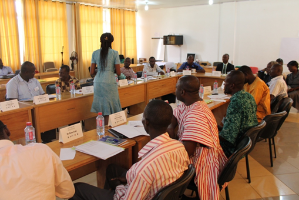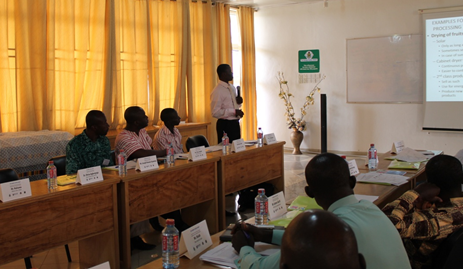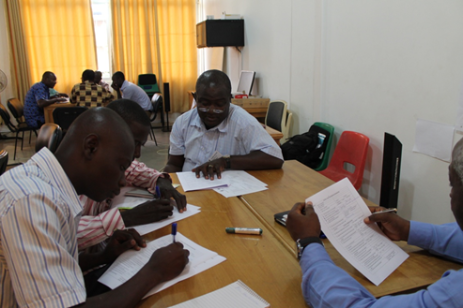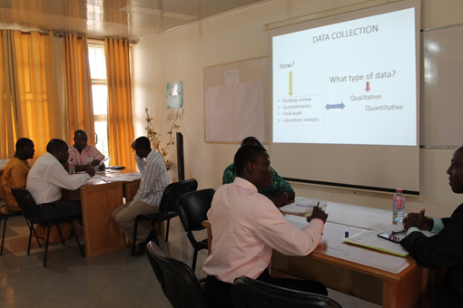News & Events
Ghana

Kwame Nkrumah University of Science and Technology (KNUST) decided to focus on maize processing. The green revolution has involved the adoption of new varieties of maize which are often more susceptible to storage losses. It is difficult to combine higher yields with storage durability, since the very qualities which lead to higher yields and therefore (potentially) increased income also make the grain more attractive to pests. Thus, high yielding varieties of maize tend to give large, soft grains with less husk cover than traditional varieties.
1) Through preliminary study, KNUST and Swan Centre identified that a lot of post-harvest losses are due to aflotoxin and fumonisin contamination from fungi and mould, due to:
- Insufficient drying;
- Contact with soil;
- Inappropriate / ill-designed storage vessel;
- Insect damage;
- Long storage period;
- Inappropriate or inadequate sorting;
- Shelling.
2) Stakeholders’ meeting in Ghana
A stakeholders’ meeting has been organised by KNUST in Ghana on the 4th of December, 2013. It was organised to seek technical support and guidance to ensure that the project achieves the desired impact, and is properly executed. The meeting served as an opportunity for stakeholders in the field to discuss their interest in specific aspects of the project activities and to familiarise themselves with the project. Stakeholders invited were selected from research institutions, universities, food processing outfits, traders, farmers and other government agencies.
For KNUST’s report of the outcome of the meeting, click here.
The stakeholders are grouped into 4 categories to obtain structured feedback on the best way for RE4FOOD to move forward in Ghana:
- Group 1: Evaluate and assess food chains.
- Group 2: Rural food processing & renewable energy use.
- Group 3: Innovative post-harvest food processing using renewable energies.
- Group 4: Stakeholder Engagement, dissemination & knowledge transfer.
The suggestions that came out of the meeting include:
- Developed questionnaires that should be segregated into sections of maize production along the value chain (i.e. production, post-harvest, processing, distribution);
- The questionnaire should be the closed type for proper responses;
- Additional questionnaires be developed separately for maize processors and marketers;
- Agricultural extension officers be trained to help in the administration of the questionnaire;
- To study and to capture information on meteorological data in Ghanaian districts;
- To encourage participation of women in questionnaire.
Photos of stakeholders meeting



Last modified: Wed, 23 Apr 2014 14:19:17 BST
